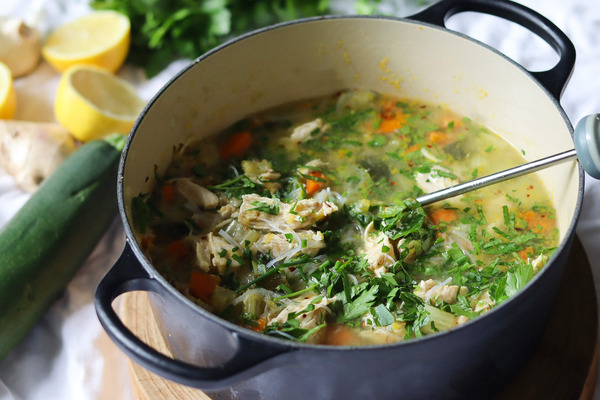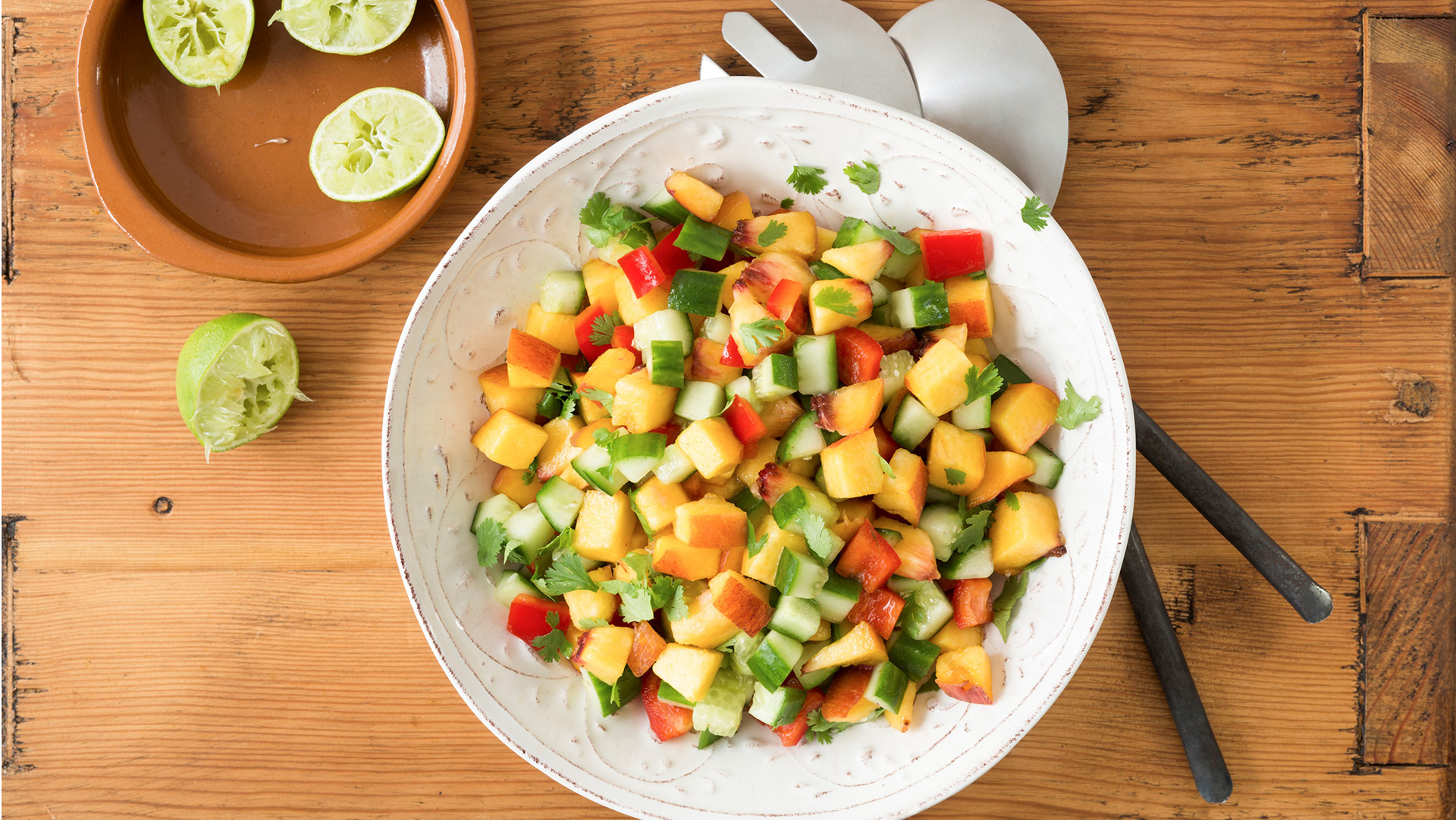-
The Mediterranean diet is one of the most investigated dietary patterns in the world, and for good reason. There is an enormous amount of scientific evidence to support the benefits of a Mediterranean diet in the prevention and management of a wide variety of diseases, including cardiovascular disease, type 2 diabetes, metabolic syndrome, depression, cognitive decline and cancer. In fact, in 2019 the Mediterranean diet was ranked as the best overall diet by the US News and World Report.
What does a Mediterranean diet look like? When speaking from a traditional sense, most researchers describe the Mediterranean diet as a plant-based dietary pattern common to communities that lived in the olive-growing regions of the Mediterranean basin before the mid-to-late 1960s.
The diet is often characterised by:
- A high intake of vegetables, fruits, nuts, seeds, legumes, grains, extra-virgin olive oil.
- A moderate consumption of fish and fermented dairy products (cheese and yogurt, mainly from sheep or goat).
- A low consumption of meat and meat products, vegetable oils, processed cereals and butter.
It is relatively high in healthy fats (from olive oil and fish), low in saturated fat, and rich in vitamins, minerals, dietary fibre and antioxidants.
On most occasions traditional foods were combined, often with olive oil. The combination of nutrients in the presence of fat provides greater nutrient diversity and absorption, particularly of antioxidants.
Some examples of traditional culinary combinations include dark green leafy vegetables drizzled with lemon juice, vinegar and olive oil; vegetables and legumes cooked with herbs and olive oil; and sofrito, a dish that includes tomatoes slowly cooked with garlic, onion, herbs and olive oil.
Food, culture and lifestyle
Nevertheless, the identity of a Mediterranean diet is intriguing and difficult to truly define, because it varies between countries and time periods. And this makes sense – the Mediterranean basin spans over 20 countries across Europe, Africa and Asia, each with different dietary patterns, religious beliefs and cultures. For these reasons, a single Mediterranean diet simply does not exist.
Many people tend to associate Greek, Spanish and Italian food as the ‘Mediterranean diet’. However, origins of the Mediterranean diet date back from ancient civilisations including the Minoan, Phoenician, Classical Greece and the Roman Empire. Middle Eastern culture also helped shape the Mediterranean diet, with the introduction of staple foods such as legumes, eggplant, spinach, almonds, spices and grains.
Despite differences in cuisine and dishes, these countries share similar ways of being and lifestyles. The Mediterranean diet is so much more than simply a diet. Rather, it’s a social practice based on a set of skills, knowledge, traditional practices and religious beliefs which connect paddock to plate.
Such practices include home-based cooking, traditional slow cooking methods, growing and sharing fruits and vegetables within the community, consuming main meals together with friends and family, frequent socialisation and engaging in regular physical activity.
How to follow a Mediterranean diet
If you think that following a Mediterranean dietary pattern could be a good fit for your lifestyle – or you simply want to improve your diet and overall health – here are a few principles to get you started:
- Use extra-virgin olive oil as your main source of fat – both for cooking and as a dressing.
- Try to eat vegetables with every meal and include a wide variety of different types of vegetables. Think colour: green, red, orange, purple, yellow.
- Eat fresh fruit every day.
- Include 2-3 legume-based meals per week.
- Include 2-3 servings of fish per week – preferably oily fish such as salmon and sardines.
- Snack on nuts (walnuts and almonds in particular) 2-3 times per week. About a handful is all you need.
- Eat smaller portions of meat (beef, pork, lamb and chicken) and less often (once or twice per week).
- Select wholegrain breads and cereals over refined options.
- Consume plain Greek yoghurt (about 200 g) daily.
- Limit your intake of sweets, pastries and soft drinks for special occasions only.
- Consume wine in moderation (limit to one standard drink, 100 ml, per day) and always consume with your main meal. Try to include 1-2 alcohol-free days per week.
- Always remember to enjoy your food, and preferably consume it in the company of friends and family.
Before making any change to your diet, particularly if you have a medical condition, or if you would like more specific advice tailored to your individual requirements, seek advice from a health professional such as an Accredited Practising Dietitian.
Why the Mediterranean diet is so healthy – and how to follow it

-
Is sharing a meal the secret ingredient to a happier life?
Why social connection may be the most important ingredient on your plate.
-
Chicken soup with parmesan, rice, peas and lemon recipe
Nourishing chicken soup
-
The best immunity-boosting foods
Key nutrients to focus on that could help to boost your immunity, and the how to get them.
-
Comforting chicken noodle soup
Packed with anti-inflammatory ingredients including leek, garlic and ginger, this chicken noodle soup is hearty, full of goodness and great for any night of the week.
-
Peach salsa recipe
Zesty and unusual peach salsa recipe
-
Pineapple gingerbread crumble recipe
A summer riff on a winter classic.
Subscribe to receive the best from Live Better every week. Healthy recipes, exercise tips and activities, offers and promotions – everything to help you eat, move and feel better.
By clicking sign up I understand and agree to Medibank's privacy policy






